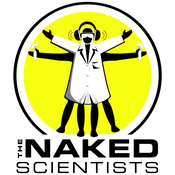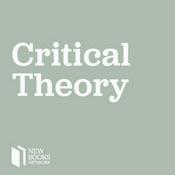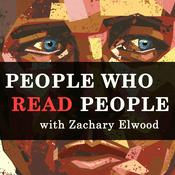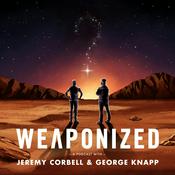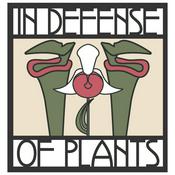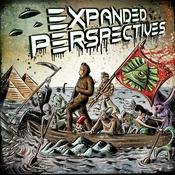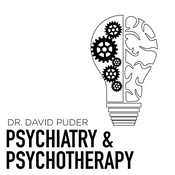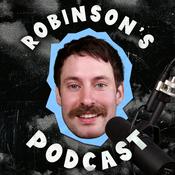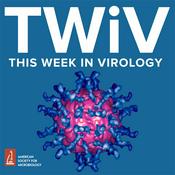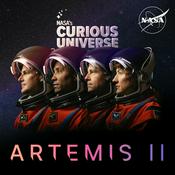171 episodes
- One winter morning, listener Jane opened her curtains to find her car roof covered in breathtaking, fern-like frost so intricate it looked like a William Morris print. But how does something as ordinary as ice create patterns so beautifully complex?
Hannah and Dara explore this crunchy, slippery, delicately patterned branch of chemistry to uncover the rules and mysteries that govern the extra-ordinary world of ice. Why does ice come in so many shapes and sizes? And does all ice form at 0 degrees Celsius? Is every snowflake truly unique? We have questions a plenty for our eager chemists, who, as all good chemists do, have a few demonstrations up their sleeves to help explain.
And we explore nature’s hidden geometry to find why these frost ferns follow the same rules as lightning bolts, river deltas and even human lungs.
You can send your everyday mysteries for the team to investigate to: [email protected]
Contributors
Sarah Hart – Professor Emerita of Mathematics, Birkbeck University of London
Christoph Salzmann – Professor of Physical and Materials Chemistry, UCL
Dr Thomas Whale – Lecturer, Institute for Climate and Atmospheric Science, University of Leeds
Producer: Emily Bird
Executive Producer: Sasha Feachem
A BBC Studios Production - From pharaohs' tombs in Ancient Egypt and medieval currency, to priceless royal jewellery and Spandau Ballet songs - gold has been prized for millennia.
But it's only really in the last century or so that we've started uncovering its usefulness in less decorative applications.
Today, gold is used in masses of electricals; it's also revolutionised part of the manufacturing sector by stopping a dangerous reliance on mercury as a catalyst; and it's vital to space missions. Although there are also some more frivolous modern uses for gold, as Hannah and Dara discover. (Gold-leaf in your cocktail, anyone?)
Challenged to find out whether all the world's mined gold would really fit in an Olympic swimming pool, our science-savvy duo discover that this antisocial element might just be the best darn thing on the periodic table...
Contributors:
- Graham Hutchings, Regius Professor of Chemistry at the University of Cardiff
- Frances Wall, Professor of Applied Mineralogy in the Camborne School of Mines at the University of Exeter
- Tim Peake, Astronaut
Producer: Lucy Taylor
Executive Producer: Sasha Feachem
A BBC Studios Production - What exactly is 'phantom pain' and how does it work?
Hannah and Dara investigate a medical phenomenon that's been known about for centuries but is often misunderstood; and involves masses of unanswered questions.
The condition 'phantom pain' is when someone gets a sensation of pain that feels like it's coming from a part of their body that's no longer there - so that could be an amputated limb, or perhaps something that has been removed, such as a tooth or an organ. It's thought to be caused by how the brain and body process pain and physical awareness, but there's still debate around what exactly is going on neurologically.
Researchers around the world are looking into the condition; in the meantime, people who experience phantom pain - like today's studio guest Lynn - often have to try out a range of treatments, to find out what combination works best for them. But as the team discover, pain is deeply subjective - and in this case, there is really no 'right answer'...
Contributors:
- Tamar Makin, Professor of Cognitive Neuroscience at the MRC Cognition and Brain Sciences Unit at the University of Cambridge, where she leads the Plasticity Lab;
- Lynn Williams, a qualified therapist and upper limb amputee who volunteered as a subject for one of Tamar’s research programmes;
- Carlos Roldan, Associate Professor in the Department of Pain Medicine at the University of Texas MD Anderson Cancer Center;
- Keren Fisher, a Consultant Clinical Psychologist who’s worked in the NHS for more than four decades; largely in pain management at the Royal National Orthopaedic Hospital.
Producers: Emily Bird & Lucy Taylor
Executive Producer: Alexandra Feachem
A BBC Studios Audio Production - Tortoises have traditionally been the poster child for slowness. These ancient, armoured reptiles are solitary, territorial and all-too-often dismissed as dull.
In fact, tortoises have distinct personalities. They have changeable moods, can learn simple tasks, remember certain useful information for years and even recognise familiar people.
But can they play?
Hot on the trail of tortoise tomfoolery, Hannah and Dara explore the stereotype-smashing studies that show there's far more to these creatures than previously thought; and find out that these complex behaviours might apply not only to the turtle clan, but potentially other reptiles as well...
To submit your question to the Curious Cases team, please email: [email protected]
Contributors:
- Anna Wilkinson, Professor of Animal Cognition at the University of Lincoln
- Unnar Karl Aevarsson, Herpetologist at ZSL London Zoo
- Gordon Burghardt, Distinguished Service Professor in the Departments of Psychology, Ecology and Evolutionary Biology at the University of Tennessee
Producer: Lucy Taylor
Executive Producer: Alexandra Feachem
A BBC Studios Production - Could you survive an eternal winter? Or is endless summer sun a more appealing prospect? Lots of us are grateful for the seasonal changes that shape the world around us, but this week Hannah and Dara are asking what life would look like without the axial tilt that brings each hemisphere closer and further away from the sun as the seasons change each year. Listener Andrew from Melbourne wants to know what would happen if the planet stood perfectly upright, no lean, no tilt, no seasons. But what else could happen? Is Earth’s 23-degree slant the cosmic fluke that made life possible?
To find out, Hannah and explore how losing the tilt reshapes climate, ecosystems, evolution and maybe even the fate of the dinosaurs.
You can send your everyday mysteries for the team to investigate to: [email protected]
Contributors
Dr Robin Smith - Climate modelling researcher at the University of Reading
Professor Rebecca Kilner - Evolutionary Biologist and Head of the Department of Zoology at Cambridge
Professor Amaury Triaud - Professor of Exoplanetology at the University of Birmingham
Aidan McGivern - Meteorologist and Senior weather presenter at the MET Office
Producer: Emily Bird
Executive Producer: Sasha Feachem
A BBC Studios Production
More Science podcasts
Trending Science podcasts
About Curious Cases
Hannah Fry and Dara Ó Briain tackle listeners' conundrums with the power of science!
Podcast websiteListen to Curious Cases, Unexplainable and many other podcasts from around the world with the radio.net app

Get the free radio.net app
- Stations and podcasts to bookmark
- Stream via Wi-Fi or Bluetooth
- Supports Carplay & Android Auto
- Many other app features
Get the free radio.net app
- Stations and podcasts to bookmark
- Stream via Wi-Fi or Bluetooth
- Supports Carplay & Android Auto
- Many other app features


Curious Cases
Scan code,
download the app,
start listening.
download the app,
start listening.






